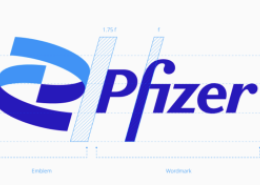Pfizer To Acquire NextWave Pharmaceuticals, Inc.
Agreement Includes Recently Approved Quillivant XR, the First Once-Daily Liquid Attention Deficit Hyperactivity Disorder Treatment in the United States
(BUSINESS WIRE)--Pfizer Inc. (NYSE: PFE) today announced its intention to acquire NextWave Pharmaceuticals, a privately held, specialty pharmaceutical company focused on the development and commercialization of unique products for the treatment of attention deficit/hyperactivity disorder (ADHD) and related central nervous system (CNS) disorders.
NextWave is the developer of QuillivantXR™ (methylphenidate hydrochloride) for extended-release oral suspension, CII, the first once-daily liquid medication approved in the U.S. for the treatment of ADHD, and holds exclusive North American commercialization rights to Quillivant XR. Quillivant XR received approval from the U.S. Food and Drug Administration on September 27, 2012, and is expected to be available in pharmacies in the U.S. in January 2013.
Quillivant XR was developed in collaboration with Tris Pharma, NextWave’s technology and manufacturing partner. Quillivant XR is built on Tris’ OralXR+ platform.
Pfizer had previously entered into an option and merger agreement with NextWave during the second quarter 2012 and made an option payment of $20 million. Today, Pfizer is exercising its option to acquire NextWave. Under the terms of the agreement, Pfizer will make a payment to of $255 million to NextWave’s shareholders at the closing of the transaction, and NextWave’s shareholders are eligible to receive additional payments of up to $425 million based on certain sales milestones.
“This agreement demonstrates our focused expansion of the Established Products U.S. brands business to offer a diverse portfolio of high-quality medicines that meet patients’ needs,” said Albert Bourla, president and general manager in Pfizer’s Established Products Business Unit. “By combining the advantages of Quillivant XR with Pfizer’s commercialization expertise, we will be able to provide ADHD patients and their caregivers a new treatment option.”
“NextWave has been focused on helping patients and families who struggle with the challenges of ADHD. We are excited to partner with Pfizer, one of the most respected pharmaceutical organizations in the world, to bring the unique benefits of Quillivant XR to those affected by this challenging condition,” said Jay P. Shepard, president and chief executive officer of NextWave.
The transaction is expected to close during the fourth-quarter 2012, subject to regulatory approval in the United States, and other customary closing conditions.
Pfizer’s financial advisor for the transaction was Jefferies & Company, Inc. Pfizer Legal Alliance (PLA) firms Kaye Scholer LLP and Ropes & Gray LLP acted as legal counsel. The PLA is a collaborative partnership between Pfizer and 19 law firms. NextWave’s financial advisor for the transaction was Aquilo Partners, L.P., while Cooley LLP served as its legal advisor.
About Quillivant XR
IMPORTANT SAFETY INFORMATION
Quillivant XR is a federally controlled substance (CII) because it can be abused or lead to dependence. Keep Quillivant XR in a safe place to prevent misuse and abuse. Selling or giving away Quillivant XR may harm others and is against the law.
Tell your doctor if you or your child have (or have a family history of) ever abused or been dependent on alcohol, prescription medicines, or street drugs.
Quillivant XR should not be taken if you or your child are allergic to methylphenidate hydrochloride, or any of the ingredients in Quillivant XR, or are taking or have taken within the past 14 days an antidepression medicine called a monoamine oxidase inhibitor or MAOI.
Heart-related problems have been reported with CNS stimulant medications:
- Sudden death in patients who have heart problems or heart defects
- Stroke and heart attack in adults
- Increased blood pressure and heart rate
Mental (psychiatric) problems can be caused or worsened by CNS stimulant medications:
- New or worsening bipolar symptoms
- New or worsening psychotic symptoms (such as hearing voices, believing things that are not true, are suspicious)
Call your doctor right away if you or your child have any heart-related symptoms or new or worsening mental (psychiatric) symptoms while taking Quillivant XR.
Quillivant XR may not be right for you. Tell your doctor if:
- You or your child have heart problems, heart defects, or high blood pressure
- You or your child have mental problems including psychosis (hearing voices, believing things that are not true, suspicious), mania, bipolar illness, or depression
- You are pregnant or plan to become pregnant. It is not known if Quillivant XR will harm your unborn baby. Talk to your doctor if you are pregnant or plan to become pregnant
- You are breastfeeding or plan to breast feed. Quillivant XR passes into your breast milk. You and your doctor should decide if you will take Quillivant XR or breast feed
Possible serious side effects of Quillivant XR are heart-related problems and mental problems, as well as slowing of growth (height and weight) in children.
Common side effects include:
|
|
|
|
Talk to your doctor if you or your child have side effects that are bothersome or do not go away.
This is not a complete list of possible side effects. Ask your doctor or pharmacist for more information.
INDICATION
Quillivant XR is a central nervous system (CNS) stimulant prescription medicine. Quillivant XR is used for the treatment of Attention Deficit Hyperactivity Disorder (ADHD). Quillivant XR may help increase attention and decrease impulsiveness and hyperactivity in patients with ADHD.
Please see full Prescribing Information and Medication Guide, including BOXED WARNING regarding Abuse and Dependence, at www.quillivantxr.com.
You are encouraged to report negative side effects of prescription drugs to the FDA. Visit or call 1-800-FDA-1088.
About ADHD
ADHD is one of the most common neurobehavioral disorders in the United States. According to the Centers for Disease Control and Prevention (CDC) 2009 report, almost one in 10 (9.5 percent) children aged 4–17 in the U.S. have at some time received a diagnosis of ADHD.1 The condition often lasts into adulthood, with adult ADHD affecting an estimated 4 percent of Americans.2 ADHD is characterized by symptoms that include difficulty paying attention, impulsive behaviors and, in some cases, patients being overly active.3
Pfizer Inc.: Working together for a healthier world®
At Pfizer (NYSE: PFE), we apply science and our global resources to improve health and well-being at every stage of life. We strive to set the standard for quality, safety and value in the discovery, development and manufacturing of medicines for people and animals. Our diversified global health care portfolio includes human and animal biologic and small molecule medicines and vaccines, as well as nutritional products and many of the world's best-known consumer products. Every day, Pfizer colleagues work across developed and emerging markets to advance wellness, prevention, treatments and cures that challenge the most feared diseases of our time. Consistent with our responsibility as the world's leading biopharmaceutical company, we also collaborate with health care providers, governments and local communities to support and expand access to reliable, affordable health care around the world. For more than 150 years, Pfizer has worked to make a difference for all who rely on us. To learn more about our commitments, please visit us at www.pfizer.com.
About NextWave Pharmaceuticals
NextWave is an emerging specialty pharmaceutical company primarily focused on the development and commercialization of unique products for the treatment of ADHD and related CNS disorders. More information about NextWave is available at www.nextwavepharma.com.
References
1. Centers for Disease Control and Prevention. Increasing prevalence of parent-reported attention deficit/hyperactivity disorder among children – United States, 2003 and 2007. MMWR. 2010;59(44):1439–43.
2. Kessler RC, Adler L, Barkley R, et al. The prevalence and correlates of adult ADHD in the United States: results from the National Comorbidity Survey Replication. Am J Psychiatry. 2006;163(4):716–23.
3. American Psychiatric Association. Diagnostic and statistical manual of mental disorders: DSM-IV-TR. Washington: American Psychiatric Association; 2000.
PFIZER DISCLOSURE NOTICE: The information contained in this release is as of October 22, 2012. Pfizer assumes no obligation to update forward-looking statements contained in this release as a result of new information or future events or developments.
This release contains forward-looking information about an agreement by Pfizerto acquire NextWave Pharmaceuticals, Inc., including NextWave’s product portfolio and research and development pipeline, and the potential benefits thereof, as well as about the anticipated timing of the closing of the transaction and of the availability of Quillivant XR in pharmacies in the U.S. Such information involves substantial risks and uncertainties, including, among other things, the satisfaction of conditions to closing the agreement, including obtaining regulatory approval in the U.S. ; the uncertainties inherent in research and development activities; decisions by regulatory authorities regarding whether and when to approve any drug applications that may be filed for product candidates in NextWave’s research and development pipeline as well as their decisions regarding labeling and other matters that could affect the availability or commercial potential of such product candidates; and competitive developments.
A further list and description of risks and uncertainties can be found in Pfizer's Annual Report on Form 10-K for the fiscal year ended December 31, 2011 and in its reports on Form 10-Q and Form 8-K.
Pfizer Inc.
Media
Joan Campion, 212-733-2798
or
Investors
Suzanne Harnett, 212-733-8009








